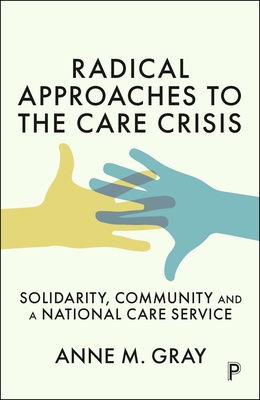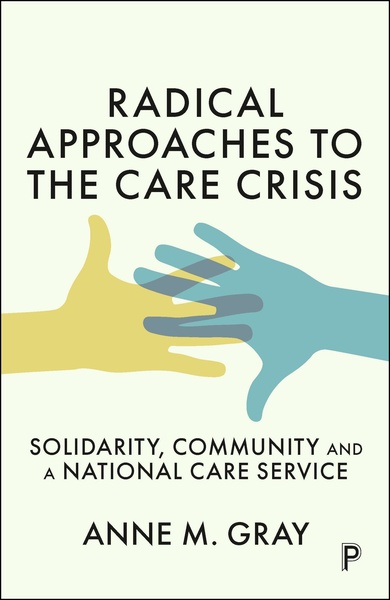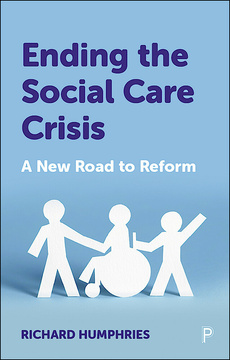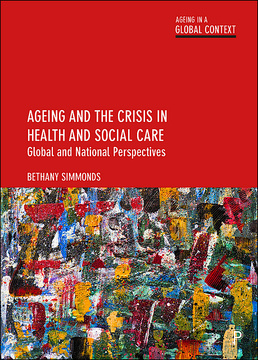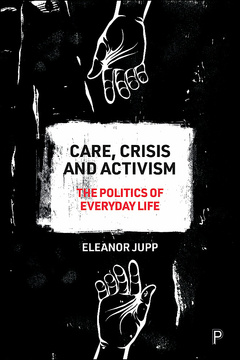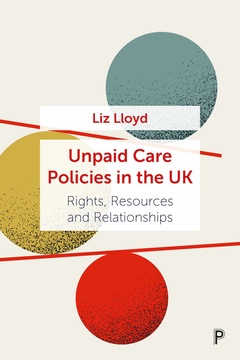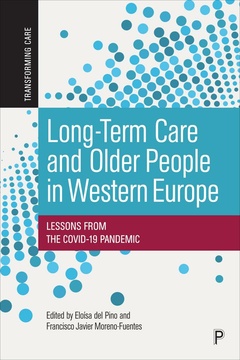Radical Approaches to the Care Crisis
Solidarity, Community and a National Care Service
By Anne Gray
Published
Apr 4, 2025Page count
208 pagesISBN
978-1447374084Dimensions
216 x 140 mmImprint
Policy PressPublished
Apr 4, 2025Page count
208 pagesISBN
978-1447374091Dimensions
216 x 140 mmImprint
Policy PressPublished
Apr 4, 2025Page count
208 pagesISBN
978-1447374091Dimensions
216 x 140 mmImprint
Policy PressThis book explores the critical issue of how to manage the ever-increasing demand for social care in Britain’s ageing society. With informal care, from family members and friends, now the dominant form of adult social care in the UK, this precarious system is struggling to provide enough support.
Exploring the relationship between formal and informal care, this book develops ideas for a ‘caring economy’, showing the potential to integrate paid-for and unpaid care within a framework of solidarity based on the strengths of the community, working to improve the quality and quantity of state-funded care provision while sharing unpaid support more widely as a community responsibility.
“Drawing on COVID-19 experiences of mutual aid and other initiatives, Anne Gray skilfully presents solutions to the current UK care ‘crisis’. Her wide-ranging analyses, combined with multiple examples, go beyond care-related policies to community development, neighbourhood action and prevention of ill-health investments, as well as the economic and value-led rationales for taking action.” Jill Manthorpe CBE, The Policy Institute at King's College London (emerita)
“An important and thought-provoking contribution to the vital debate about how we meet the growing care and support needs of an ageing population.” Richard Humphries, Health Foundation
Anne M. Gray, now retired from London South Bank University, has authored academic papers on older people’s social capital, sheltered housing, and loneliness. She is also a campaigning activist for better services for seniors.
1. Introduction
2. Survey evidence on paid and unpaid care
3. How can informal care be sustained?
4. Who pays? How much care should be free, what kinds and for whom?
5. Widening the caring circle: towards a caring economy
6. Solidarity projects: mutual aid, timebanks, community unions and volunteers
7. Reducing the need for care
8. Conclusions and solutions
Appendix A: Cost calculations and revenue sources for expanding subsidised care
Appendix B: Seniors’ different needs for help and how they are met
Appendix C: Stories of lived experience







